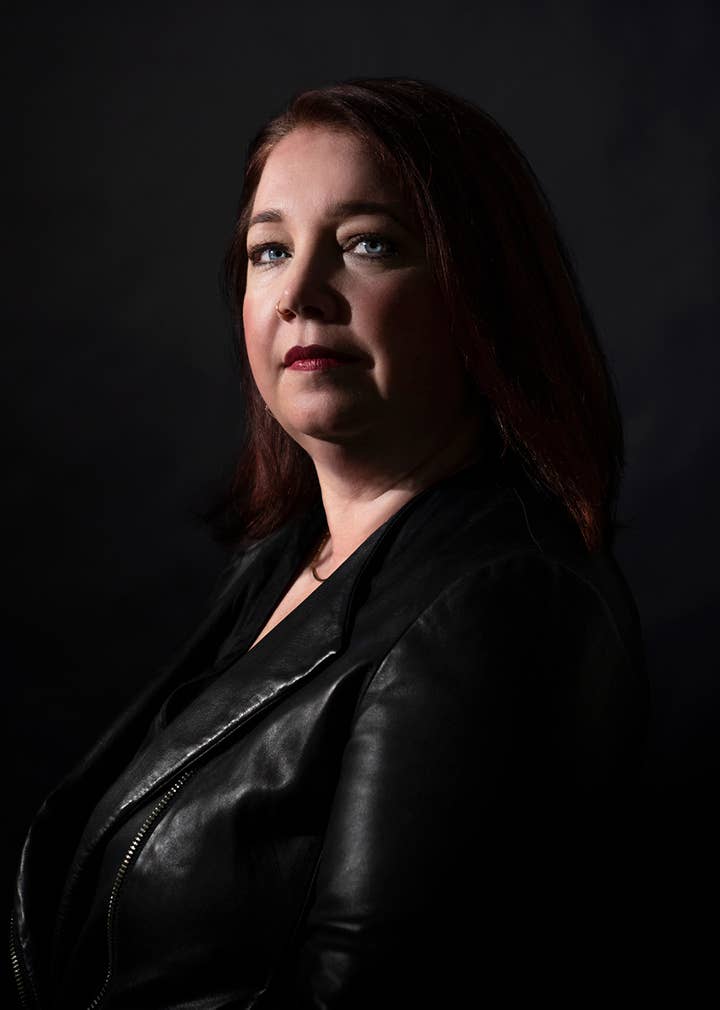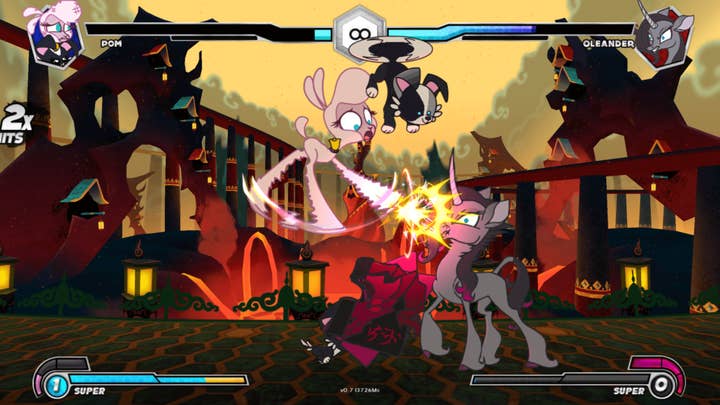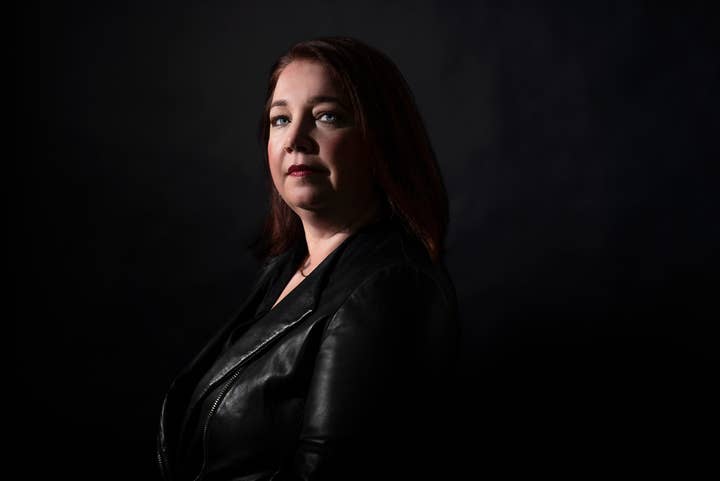Zordix: "Despite challenges and effort surrounding M&A, the risk still proves worth the reward"
The company's CEO, Christina Seelye, tells us why you should consider merger and acquisition activity
We are without a doubt in an era of consolidation within the games space, with the industry's leviathans snapping up some of the smaller fish left and right.
As Zordix CEO Christina Seelye says in her GI Live: Online session, there were 299 mergers and acquisitions deals in the games space in 2021, worth $85 billion in total. That was before a record $90 billion was spent on acquisitions and mergers in the sector alone in January 2022, mostly thanks to Microsoft and Take-Two's blockbuster purchases of Activision Blizzard and Zynga, respectively.
"These are wild times and the industry shows no sign of slowing down," she said. "We have entered a new era, requiring new ways of thinking and new ways of doing business. The numbers alone tell a very compelling story."
For some founders and leaders, M&A is part of their business plan, while others might fear what the impact of consolidation is on the games industry.
Seelye herself has been on both sides of the M&A process, having been through six deals. The company she founded, Maximum Games, made its fair share of acquisitions, such as the UK arm of publisher Avanquest, and developers Modus Studios and Mane6. Then in November 2021, her firm was bought by Zordix for $42 million, before Seelye was appointed CEO the following February.

Having been through the M&A process, not only as the buyer but also the company being bought, Seelye has her fair share of lessons to share on the topic.The first was knowing when you are ready to be acquired and being able to brave the storms of change.
"There's no magic formula, of X years, Y employees and Z games," Seelye explains.
"Here's how we knew we were ready: We had years of adapting and learning under our belt. We knew that we could be flexible with the inevitable shifts and growth that would come our way. We knew we were ready because we were grounded and established core values. With those in place and alligned with our partners, we knew we could contribute to something bigger.
"We were ready because Zordix brought with it opportunities that would allow us to expand and grow and continue to learn and challenge ourselves."
Secondly, you have to have the patience to know when the right situation has presented itself.
"Every merger should provide something unique and useful that allows you to achieve more, remain more relevant, maintain a competitive edge," Seelye says.
"For us, when we acquired Avanquest UK, it was widening our global reach. All of a sudden we had access to all of Europe and to people who understood the market nuances and distribution channels in that region. They helped us forge direct relationships with retail and channel and digital channels in countries we had never been active in before. Acquiring development studios like The Balance and Mane6 -- creating Modus Studios -- allowed us scale up our internal resources, add more creative talent to our already-diverse group. They had so much to offer and we were stronger for having those skills and creativity in-house.
"We knew it was the right situation because we had a deep respect for what each other brought to the table. They respected our ability to get the best commercial result and we respected their ability to create compelling, unique and super fun games. When Maximum Games was acquired by Zordix, it was all of those things and they will allow us to grow together in ways that we couldn't alone. Across the board, these were the right situations at the right time and all parties have enjoyed the creative and professional and financial rewards of these mergers."
"These are wild times and the industry shows no sign of slowing down"
Seelye adds that M&A activity doesn't have to be a "blind leap of faith." In fact, it's often better to work together beforehand to get an idea of what your potential partner is like before reaching for your wallet.
"If you've seen Love is Blind on Netflix, then you know how that goes and it's not great," she laughs. "In many instances, we worked with our M&A partners before any M&A event took place. Studios can work with publishers prior to an acquisition -- kind of a date before you marry, so to speak, to see if it's a good fit. That's how you know if it's the right situation."
It's also important to keep in mind that for a merger or acquisition to work, you need for there to be clear communication. Both sides of the deal need to get their people singing from the same hymn sheet so that they can work together moving forward.
"There are two parts to M&A; merger and acquisition," Seelye says. "While technically this terminology speaks to the financial structure of the deal, in practice both elements have to come into play. The 'M' is central to your success. When it comes to communication, there truly needs to be a merge. I found that uniform communication that connects all parties makes a world of difference in a successful M&A event.
"At Maximum Games, we'd hold company-wide standups every time we acquired a new team, and when we were acquired by Zordix, we talked about what it meant for our revenue and numbers, how it benefitted our internal structure, what everyone could expect for the next few months to a year, and rallied around the way that convergence would transform us for the better. We welcomed questions and comments and did our best to make sure our team knew this was an impactful change, that would elevate us to achieve greater things. These simple repeatable elements of communication took away so much of the ambiguity around the change and allgined us for the future."
Another aspect of clear communication in M&A is the need for clear goals right from the start.
"The second part of convergence is establishing clear team goals from the very start. Increased capacibility and reach are only useful if you have direction right from the beginning. Our five-year goal at MG was to continue acquiring studios, but instead of taking another five years to do that, becoming part of the Zordix group accomplished that in less then a year. MG formed a stronger infrastructure with Zordix, far stronger than if we had continued acquiring games companies on our own."

Tied into this is the need to clearly communicate your needs to your new partners.
"My job is to help the studios we acquire be successful and there is no one size fits all solution," Seelye says. "The studios we work with are in various locations around the world and are structured with their own areas of expertise and experience. This is great for diversifying resources, but also an important distinction at making sure we understand each studios particular needs and challenges. Communicate your needs and challenges. Through M&A, you have access to a world of resources, but you have to take advantage of them. Taking steps to connect on those things from the getgo sets up all parties for success."
As for why companies should consider M&A, Seelye gives a few reasons. The first of these is -- like so many things in our tech-driven world -- data. The exec said that more companies working together means more information that can make life easier for everyone.
"One of the prime places you can level up with the kind of access only M&A can provide is through data," Seelye says. "As part of a larger group, you have visibility of a much wider data set; analysis from multiple companies, for games in multiple genres. More data helps everyone make better decisions. Data from your own game's results gives you visibility to whether you were overperforming or underperforming, and access to market research can help you strategise on that title you have been working on for so long so it is packaged and promoted in a way that sets it up for success."
It follows that as well as more data, companies that merge will have access to a greater level of experience. As they say, two heads is better than one. M&A means that you will have more people working together, creating a level of knowledge that can be invaluable.
"Communicate your needs and challenges. Through M&A, you have access to a world of resources, but you have to take advantage of them"
"The breadth of experience in different genres, markets, development, types of marketing and promotion, publishing and different revenue channels, all of the things that honed internalised knowledge that comes from M&A is invaluable," Seelye continues.
"Think about what a company learns through trial and error. You discover what works and what doesn't, ways to smooth the process overall. For us, it was things like how to set realistic milestones in development, what is the most efficient way to conduct operations, what it is the right balance of physical and digital games, what are the resources necessary in advance of each game and how to adapt when new resources are needed mid-development. It's all of this knowledge that comes from time, from being in the trenches, from failing and learning.
"It took time to learn how to promote games properly, how to show up at trade shows like E3 or Gamescom or PAX and to grow our brand along with building recognition, anticipation, excitement for our titles. With all of this experience comes connections and networks. It takes years to develop the kinds of positive relationships we now have with key press outlets and agencies. We're only a successful global company today because of the networks and connections and studios we acquire and they brought to the table."
One of the end results of pooling all of this knowledge, Seelye says, is that developers can spend more time focusing on actually creating their games knowing that there are large departments of people at a company to support them.
"Access and experience give you the freedom to focus on what you are best at, what you're passionate about, what you love," she says. "It allows you to direct your efforts towards your strongest skillset while learning from others and allowing other subject matter experts to fill the gaps. Instead of doing it all alone as a single company, we're doing it together.
"Having an entire marketing team at your disposal to promote the game you poured your soul into, having an HR department to make sure that everyone working so hard on the game is supported however they need to be. It's every area beyond your personal creative expertise. In this kind of setting, everyone brings their best to the table; the things they are good at, the experience, the data, their unique contribution. It collectively makes us all stronger. The point of M&A is to elevate everyone involved to new heights, increasing our capabilities and driving everyone closer to common goals."
Ultimately, Seelye concludes that while there are risks to mergers and acquisitions, it is is still something that companies should explore due to the myriad upsides.
"At the end of the day, despite the challenges and effort surrounding M&A, the risk still proves worth the reward," she says. "The results can quickly propel a company to a much higher playing field. The tech industry is always changing and we've always tried to adapt and change with it. The developer-publisher is changing too. More and more companies are adopting this approach of bringing the resources needed to succeed inward through M&A.
"We are no longer developer-publisher partners working together for mutual benefit. We are a converged, global team of passionate game makers, fully responsible and involved at every stage of the creative process, unified in our desire to put out awesome games, everywhere."
She concludes: "Isn't that amazing?"


